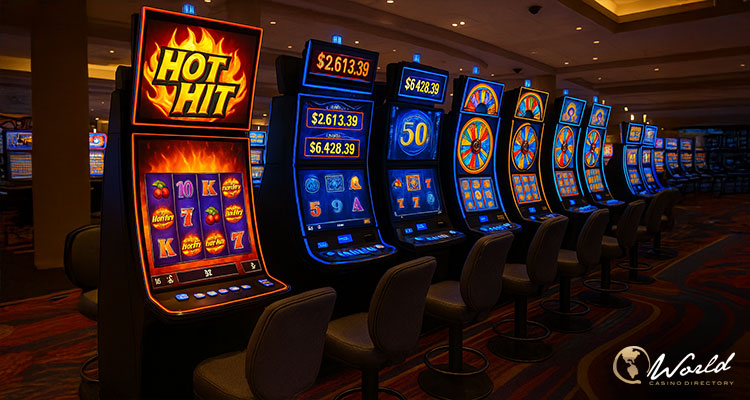The Pennsylvania Senate has approved a proposal aimed at updating long-standing casino regulations by lowering the minimum number of slot machines that certain facilities must operate. Supporters say the move reflects today’s gambling trends, which have shifted sharply toward online and mobile platforms.
Senate Bill 840, sponsored by Sen. Dan Laughlin (R-49), seeks to reduce the required slot count for Category 1 and Category 2 casinos from 1,500 to 1,000. The original minimum, set nearly two decades ago, was part of Pennsylvania’s initial gaming legislation, designed for an era when brick-and-mortar venues were the primary option and surrounding states lacked casinos.
“When Pennsylvania first legalized gaming, surrounding states like Ohio and New York didn’t have casinos. That’s no longer the case,” Laughlin said, according to NorthcentralPA.com. “Facilities like Presque Isle Downs & Casino in Erie are facing growing competition from out-of-state casinos and online gaming platforms. Reducing the slot machine requirement gives these businesses the flexibility to adapt while preserving jobs and tax revenue.”
Adapting to the Digital Shift
Lawmakers point to the rapid expansion of online gambling as a key driver for the reform. Unlike physical casinos, digital operators face no constraints on space or machine numbers. Instead, they compete with extensive game selections, fast payouts, mobile compatibility, and bonus structures often more generous than in-person offers.
These online platforms are not the only competitors for consumer attention. Virtual raffles, contests, and skill-based games—though not always considered formal gambling—have blended elements of chance and competition in ways that further pull audiences away from traditional slot machines.
In many Pennsylvania casinos, the current mandated minimum means large sections of the gaming floor are occupied by underused machines, while demand grows for sportsbooks, table games, or entertainment spaces. The proposed reduction would allow operators to repurpose areas to better match customer preferences and revenue opportunities.
Balancing Concerns and Opportunity
The bill’s progress has not been without opposition. Some lawmakers and stakeholders expressed concern that removing machines could result in fewer jobs or diminished tax contributions. However, proponents stressed that the legislation does not require casinos to reduce their machine count—it simply ends the obligation to maintain unused units.
“This bill is about modernization and sustainability,” Laughlin said. “It’s a commonsense reform that protects jobs, strengthens our local economy and allows our gaming industry to remain competitive in a changing market.”
Advocates also argue that freeing up floor space offers more than just cost savings. Some venues may opt to expand dining facilities, add event spaces, or install additional table games. Others may explore emerging gaming technologies or introduce smaller-scale, specialized machines that require less space. The legislation ensures that such changes would still fall under the oversight of the Pennsylvania Gaming Control Board, which retains authority to review and approve adjustments to a casino’s slot count.
Next Steps for the Legislation
Senate Bill 840 passed with strong bipartisan support and now heads to the state House of Representatives for consideration. If enacted, the measure could give Pennsylvania’s land-based casinos more flexibility to evolve in a marketplace increasingly dominated by digital gaming.
Whether the new rules lead to sweeping redesigns of casino floors or simply offer operators more strategic breathing room remains to be seen. But supporters view the change as part of a necessary evolution, one aimed at keeping the state’s gaming industry competitive amid fast-moving shifts in how and where people choose to play.



